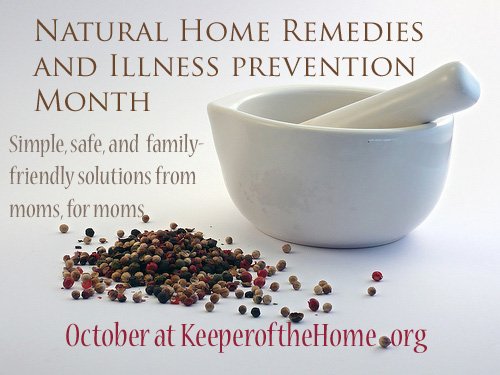What is “Real” Health?

Written by Kate Tietje, Contributing Writer
These days, it’s hard to pinpoint what health really is. Our country’s health is going down the tubes – there are constantly reports on how more and more people are suffering from obesity, diabetes, heart disease, chronic infections, stomach disorders, reproductive disorders/infertility, cancer, neurological disorders, learning disabilities…. And yet, if you talk to most people, they’ll claim “Yes! My family is pretty healthy!”
Something doesn’t match up. How can individual people believe that they are “generally healthy,” yet we know that our population as a whole is not healthy? Is it always that “someone else” is unhealthy, not us? Or maybe it’s that we don’t really know what health looks like anymore. I believe the latter is the case.
We don’t want to believe that we are the unhealthy ones. And when everyone around us is struggling with the same issues we are, especially issues that generally aren’t seriously debilitating, it’s easy to think that we are normal. We must be healthy, at least in general.
A lot of people will say, “Okay, so I’m overweight…but I still feel good, I don’t get sick very often, and everything else is great!” or “I’m struggling to get pregnant, but I’m really healthy in other ways!” They don’t realize that it’s all connected. We can’t be “really healthy” in one way, yet have a huge struggle in one area. It’s like saying, “Well, I only have a little cancer, but otherwise I really am healthy!” (That’s not to say that those who are really only slightly overweight are really unhealthy, it’s just a common example.)

Image by mcfarlandmo
Signs of Not So Good Health
So what is real health? How do we know when we are really healthy, and when we are not? I wrote awhile back on Early Signs of Bad Health, but I’d like to follow up a little on that list here. If you have the following signs, you are not as healthy as you could be:
- Being overweight; especially if unable to lose the weight (even 15 – 20 lbs.)
- Frequently being fatigued
- Suffering from depression or anxiety; panic attacks
- Struggling to get pregnant; suffering infertility, unexplained repeat miscarriages
- Chronic sinus/ear infections (especially in children)
- Allergies, especially several or severe
- Diabetes
- Auto-immune conditions
- Eczema (a sign of allergies)
- Frequent constipation and/or diarrhea
- Frequent heart burn or indigestion
- Acne or other skin rashes
- Frequent or chronic stress
Do you have any of these signs? Something’s going on. You could feel so much better! When your body is truly healthy, many of these little annoyances go away. You may lose weight without trying, your skin will be clear and smooth, you’ll have energy, you won’t have sinus infections anymore, and you’ll feel good most of the time!
Most people don’t realize that they just don’t have to live with the minor annoyances above. They are caused by our modern diet (which is poor) and our busy lifestyle, as well as the chemicals/toxins in our environment. By moving towards a more natural diet and avoiding chemicals in our lives, we can minimize the symptoms we suffer.
Most people suffer from adrenal fatigue these days, because our adrenal glands are very sensitive to stress (emotional and physical). You’ve read some about that this month already and you’ll read a lot more about it. By eating a healthy diet, though, you can combat adrenal fatigue.

Image by DrJimiGlide
Signs of Good Health
How do when know when we are really, truly healthy? Obviously we can’t be perfectly healthy all the time. We’ll still catch minor colds and other temporary illnesses. We’ll catch them less often and they’ll be less severe (probably), but it’ll still happen. How do we know, though, when we have achieved true health?
- Plenty of energy
- Restful sleep
- Infrequent stomachaches, rare diarrhea or constipation (accompanying acute illnesses only)
- Feeling “really good” most of the time
- Normal, regular menstrual cycles (if female and adult, obviously!)
- Ability to conceive easily; no pregnancy complications (conceive within 6 months}
- Stress is temporary and manageable; no panic attacks
- Feelings of happiness; mood is well regulated
- No autoimmune conditions, or pre existing conditions are well managed and symptoms are minor
- Clear, beautiful skin
- Elimination of allergies or lessening of symptoms
Doesn’t this sound wonderful? We can be healthy. We can feel great. It is not unobtainable. It’s especially important to know, even if your health has not been so great for awhile, even if you do suffer from diabetes, fibromyalgia, PCOS, or other chronic diseases, you can overcome them and be healthy again!
[By the way, very small plug, I just released a new ebook, Healthy Pregnancy Super Foods, aimed at helping women simplify healthy pregnancy nutrition! A good diet full of super foods can help at any time, but especially when preparing for conception or while pregnant or breastfeeding.]
How is your health? What is “real health” to you? Have you overcome any of these challenges, or are you attempting or hoping to soon?
Top image by stacy michelle
Other Related Posts You May Enjoy
- The Benefits of Sleep: 8 Benefits for Getting Quality Sleep
- What it Means to Be Well
- My Journey to Burnout: Proof That I Really Can’t Do It All
- Developing the Exercise Habit
- Staying Motivated to Excercise
- Finding Fulfillment in Being A Mother Only
- Naturally Neutralizing Stress: Herbs that Calm
- The Terrible Thirst of Depression
- Treating Depression Naturally: Supplements, Herbs, and Foods for Feeling Better
- Panel Discussion on Burnout and Fatigue: 3 Women Get Real About Their Struggles part one and part two
- What is Adrenal Fatigue and Do I Have It?
- Adrenal Fatigue: Help and Resources for Healing






Thanks so much for writing this Kate! For most of my life I have struggled with hormone imbalances that medical Doctors were (and still are not) able to diagnose. In the last 10 years I have moved towards a more natural and chemical free lifestyle and eating behaviors. At one point, when I was using strictly medical methods to try to control my weight, I gained 80 pounds in about 4 months. Then I started going to a naturopathic doctor and I lost 100 pounds but it was with supplements and extreme exercise. As soon as I could not maintain the extreme levels of exercise and went back to Grad School (where I could not afford the supplements) I gained it almost all back within two years. Now I am losing weight without the unhealthy obsession with exercise and by focusing on eating healthy, whole foods, and avoiding processed chemicals. I feel so much better and I know that when I reach a healthy state I will lose weight without anxiety. I do wish I had more guidance with any supplements that I should take but I have always absorbed food better anyway so I think I will continue on this path. I appreciate your blog(s) so much. I wish more people would look at the ways our bodies are interconnected in such a wonderful creation. Treating the symptoms of a condition usually throws everything else out of balance too. Working with the foods and herbs we were given helps our whole body and that is the way God intended (in my opinion.) Thanks again.
What intrigues me is what happens to the body when there’s a drastic change in diet (for better or worse) for a short period of time. I’m specifically thinking of the holidays. We can almost count on getting sick when we go on vacation or eat out (we only eat out 4-5 times a year, and that includes fast food). Our bodies are so used to a regular diet of balanced carbs/fat/protein, plenty of fresh veggies and fruits, raw milk, homemade yogurt, no beverages except fermented beverages, etc., etc., but one trip through the drive-thru or a short vacation away from home and we have a 12 hour stomach type of bug.
@Renee Harris,
so true renee!!
great post! i too have struggled with chronic illness for the past 5 years or so… at first i went to doctor after doctor who told me nothing was wrong but i knew something was wrong because i didn’t feel good! i was finally diagnosed with fibromyalgia (because they didn’t know what else to do) but after years of reading and research, i think it’s an adrenal issue as well. all the stress we live with from day to day and our inability to deal properly with that stress, really takes a toll on our bodies.
i feel much better generally now due to drastic diet changes (no more sugar, white flour, processed and refined, etc.), yoga and other stress management tools, exercise, and a better overall understanding of what my body needs to get back to health again. i’m trying very hard to take care of myself and i’m starting to see the fruits of that labor although the process is very slow. it took years to get me as sick as i was and, unfortunately, it’s going to take years to get back to real health again too.
I wish it were easy to just up and change. I personally have a lot of health issues. Cost is the biggest factor in avoiding most of the crud that is out there. I have an underactive thyroid that I have to manage on my own because the Dr.’s tests said there wasn’t anything wrong. its worse now but I have no way of paying for more testing. I also seem to have a mild form of fybromyalgia as those symptoms existed before my thyroid went nuts. I am gluten sensetive as well. We are in survival mode financially as my husband works when there is anything available. So there isn’t funding available for the chemical free options. I am very interested in ultra cheap methods of getting better. We also are very rural without good health store options around. I cook from scratch so we skip most of the boxed pre made stuff. For non food chemicals I usually clean with either vinegar or baking soda everything else is the cheapest stuff I can get from the store. I would like input but remember there isn’t any wiggle room, no fluff to cut from the budget to free funds for better choices.
@Colleen G., The best I can say is brew kombucha at home! It made a huge difference to my husbands mother. Avoiding foods known to cause thyroid issues can be good too. Spinach broccoi green peppers and other cruciferous veggies. Add more fat if you can. Coconut oi is the best. Amazon has good prices on it. Even just those three things can hep so much.
@Colleen G., I wonder since you are rural if you might be able to link up with some local small farmers who might let you trade labor for a portion of what they are growing? We did that during a period of unemployment as a way to maintain access to high-quality locally grown veggies & fruit when there wasn’t room for them in the budget. http://www.localharvest.org is a great resource.
Great post (again!) – I am dealing with adrenal fatigue and fibromyalgia and eagerly read what I can on it. Your series has been helpful.
I do feel the burden to point out one thing regarding infertility – although I believe it is often caused by poor health, that is not always the cause. God is the Author of life and sometimes He chooses to withhold pregnancy from some couples for His reasons. There are several such stories in the Bible on this issue. So although I would recommend to any couple that has trouble conceiving to be as healthy as possible, some might find that God still withholds the ability to conceive for His reasons.
I am disappointed and angry at the misinformation, which will be EXTREMELY hurtful and injurious to some readers, that Infertility is solely an issue of health or non-health.
We also went through the horrendous trial of Infertility…..not because we weren’t healthy, but because all the testing revealed I just didn’t have “the raw materials,” as I delicately state it in public.
I was extremely healthy, and God chose to give us, instead, children through Adoption—which has been another long, hard journey. But we have been tremendously grateful for His guidance, grace and mercy throughout it all!!
I’m hoping to clear up my skin with more water and less sugar!
People really don’t know what healthy looks like anymore.
Back when I worked at a vet’s office, people were truly blind to just how unhealthy their pets were. Especially when it comes to weight. I sometimes brought my younger border collie into the clinic, and patients would ask if he was a neglect case because he’s skinny. Uh no, he is just athletic without a pound of fat on him. The vet often said she wished more of her patients looked like him. But because most of what people see are severely overweight goldens and chis, they begin to think being overweight is normal and healthy. I know this little story was about animals, not people, but I believe the same blindness occurs when it comes to other people, as well.
@Rebecca C., I watched Sicko a year ago and a woman was so upset because they said she was too fat for insurance. Thats not good but she said she was norma. She was 5 3 and weighed over 18O pounds! Thats not norma! It doesnt mean she doesnt deserve heath care but that is just not a heathy natura weight for someone of that height.
I have many of those unhealthy symptoms. I started Donielle’s (from Naturally Knocked Up) Sugar Detox. First week was eliminating High Fructose Corn Syrup, this week it’s white flour, which proves to be a bit more of a challenge than week 1. But I’m excited to be a course to a healthier lifestyle. I don’t feel like I eat horribly, but like you say, even a little bit of the bad stuff can have damaging affects.
It’s so disenchanting to know that so many of our foods and day to day products are laced with chemicals. In a perfect world, INDUSTRY would care. But I guess we have to care first, and be a voice that says NO, and we will then see more and more products catering to what we WILL buy.
Great article! I feel as those people have given into the unhealthy living. Instead of feeling “really good” most of the time we opt for feeling good some of the time and live with the overall bad health. We see our relatives dying of cancer or heart attacks and think our fate will be the same because it “must be in the genes”. It’s like we have given up on the idea of true healthy living.
I used to deal with endometriosis symptoms every menstrual cycle. The pain was awful. One surgery later and a whole lot of diet changes and I don’t have menstrual pain nearly as bad as I used to. Most of the time now it’s just discomfort. Diet does change the way we feel.
God has given us food to nourish us, yet we (general public) opt for the a weighed down, unhealthy way of living. I opted for healthy living to thank my God for the love and care he gives me. Maybe if we thought about eating healthy as a way of thanking our God, the perspective and motivation might change.
Thanks so much for this article! I’m really enjoying all your posts on natural ways to be healthy. DD and I struggle with several chronic health problems; meds are currently a necessity (especially for DD’s asthma), but I know it’s not God’s will for us to take piles of pills for the rest of our lives. He’s been directing me to lean on His healing and on natural methods for improving our health, and I’ve been very pleased by the improvements we’ve seen so far. We’re still taking some meds, but this year was light years better than last; I’m very hopeful that we’ll be able to ditch the meds entirely in the near future and just enjoy complete, natural health.
Kate- Another good article…. and very true… It reminds me of myself (except the overweight part) before I changed my diet and added clay to my daily health routine. I was always sick with sinus infections, lack of energy etc… Its amazing what adding clay to remove all the toxins , build ones immune system, balance ones pH level can do. And, of course, drinking water instead of cokes and a diet that makes good sense.
It was much easier than I thought and the benefits can be amazing…
paul
I have Type 1 Diabetes. It is not because I’m “unhealthy”; I’m not overweight, I eat right, and I take care of myself. Type 1 Diabetes is an autoimmune disease caused by a genetic predisposition paired with an environmental trigger…Not bad health. Unless by bad health you mean an entirely unpreventable genetic predisposition coupled with a similarly inexorable environmental factor. To suggest otherwise is to further reinforce the notion that these diseases are the person’s fault and that a change in diet is going to make them go away. Becoming and staying as healthy as possible isn’t going to make Diabetes of any kind “go away”. It may become more controllable and something that doesn’t require as much daily disruption, but once you’re diagnosed with it, it’s always going to be a serious health concern that requires attention. To suggest otherwise is simply irresponsible. There are already too many people that ignore their Diabetes to the further detriment of their health; too many “miracle cures” that encourage people to stray away from the proper management of their disease.
Therefore, to include Diabetes on your “Signs of Not So Good Health” is to misinform the general public and further reinforce the common misconception that all Diabetes is caused by poor health habits, such as eating too many sweets. This gives some people without diabetes a superiority complex that causes them to make people with Diabetes feel like it is THEIR FAULT they developed the disease. It’s so important to point out that you have to have the gene to get Diabetes–you could be 500 lbs and not leave the couch all day, but if you don’t have the gene, you’ll never develop the disease. Yes, the incidence of Type 2 Diabetes is on the rise, and some cases are preventable, especially in those who are overweight or obese. Being diagnosed with Prediabetes in particular allows the person an opportunity to become healthy and prevent the development of Type 2 Diabetes.
Don’t get me wrong, I’m all for being/becoming as healthy as possible; since being diagnosed with Type 1 Diabetes, I’ve become the healthiest I’ve ever been. Being diagnosed with a chronic illness is a major motivation to take care of yourself as well as possible. HOWEVER, as I’ve already stated, it’s horribly detrimental to misinform both the people affected by these diseases and those who are not because it makes life harder for those of us who have to deal with the day to day challenges that these diseases entail. It’s not something you can “overcome;” it’s only something you can manage as a part of living well. I don’t doubt your intentions are good, and the overall message is great, but in the future, please, please, PLEASE review the current medical literature before making claims of this nature, especially since there are many who will take your word as scientific fact.
@Ashley, I think that Kate was probably referring more to Type 2 diabetes, which develops later in life. Type 1 diabetes is certainly a serious illness that needs to be properly treated. I do think it’s important to mention that it can be managed in many cases through dietary and lifestyle changes, as it sounds like you yourself have done. 🙂
@Stephanie @ Keeper of the Home, I agree that she is most likely referring to Type 2 rather than Type 1 Diabetes. However, it would have been helpful for her to mention this, as the two Types are very different in their causes and treatment!
I have been making dietary and lifestyle changes, but this only helps to some extent–eventually, most people with Diabetes (of either type) will need insulin to properly control their BG numbers (according to my CDE and the classes I’ve taken), which in turn prevents complications. And after all, isn’t that the most important thing?
I elected to make this switch early on, while I’m still in the “honeymoon” phase of Type 1 (when your body still makes some insulin and numbers are easier to control). I started with diet & exercise, then moved on to Janumet (sitagliptin/metformin) when my numbers were inexplicably high. This was around the time we found that I had slow-onset Type 1 rather than Type 2 Diabetes. My numbers kept rising, so I chose to start insulin therapy recently. I think the end result (lower BG numbers and less risk of complications) is much more important than the form of treatment, be it diet & exercise, oral meds, or insulin. It’s also important to point out that the failure of any of these treatments (not including insulin, of course) does not mean the patient is being noncompliant or not making healthy lifestyle choices; sometimes, the current treatment simply isn’t enough to properly control the disease. This may seem like a minor distinction, but trust me, when you already feel like it’s somehow your “fault” you developed this disease, it means the world to know that some things are truly beyond your control and sometimes will not respond to the changes you’re making, however positive.
Again, I agree that dietary and lifestyle changes are very important not only to disease management, but to overall health…But again, this disease usually requires much more than that to be properly managed! =)
@Ashley, Yes, I was talking about Type 2. And it’s critical to understand that MANY of these cases CAN be completely managed or eliminated. There are plenty of people I’ve talked to who have! Drew Carey would be the most famous and recent example….
The thing is, in type 2, it’s primarily about insulin resistance, often due to obesity. If you can lose weight and get your adrenal glands on track, and your hormones working properly, your body will not be resistant to insulin any longer. This is not true in type 1; but it is true in type 2. Many, many people CAN make changes to be healthier! And many have.
I am also not intending to “blame” anyone for their health; in most cases, diseases developed because there was a lot we did not know. Most people believe they are doing their best because they only have so much information. Doctors often don’t tell people the right stuff. Such as, eat lots of grains, fake sugars, and not too much fat! That’s a recipe to get sick, but it’s what doctors tell you. So it is not anyone’s FAULT, I am just saying that regardless of where you are, you can feel good again, you can have hope.
@Kate @ Modern Alternative Mama, Managed, yes. Eliminated, no. Even if, as you suggest, insulin resistance is decreased through weight loss, it doesn’t change the fact that you have diabetes. Your pancreas produces less insulin over time, so even if weight loss fixes the problem in the present, your blood glucose numbers will likely rise again in the future and require attention again. Insulin resistance does not “disappear” in these cases; it is simply much more manageable as your body more efficiently uses the insulin it makes. But what about the cases of Type 2 in which the body doesn’t produce enough insulin in the first place? In these cases, it’s not insulin resistance that is the problem, but insulin deficiency. Many Type 2 patients have some features of both of these problems. Again, as pancreatic function decreases and produces less insulin over time, the symptoms of diabetes will return down the road for many of the patients who are initially able to eliminate them through diet & exercise/weight loss.
I should add that although my sister and I have Type 1 Diabetes, my dad has Type 2. He was able to manage his through diet and exercise alone, which led to a 30 lb weight loss. He no longer has to check his BG several times a day or even several times a week, but he is still careful to watch what he eats and exercise as he should. His endocrinologist, whom he still sees every six months, still considers this Type 2 Diabetes, albeit well controlled. Any diabetes expert will tell you this…Diabetes is a lifelong disease, and although it can definitely be well managed through the lifestyle changes you’re suggesting, it never goes away, and to suggest this is simply dangerous. I’ve read literally a dozen books on the subject over the past five months since my diagnosis, and I keep up with the latest news and research related to it on a daily basis. The best response I can give you is an excerpt from the ADA’s Complete Guide to Diabetes (4th Ed., 2005, pg. 48):
“Despite what you might read in the newspaper or be told by friends or relatives, there really is no such thing as a ‘touch’ of diabetes. What people may be talking about is type 2 diabetes, which often responds well to healthy eating and regular exercise and may not have yet shown any signs of damaging body parts. Or they may be describing gestational diabetes, impaired glucose tolerance, or pre-diabetes.
The reality is that diabetes is a serious, life-long disease. Describing someone as having a touch of diabetes is like saying a woman is ‘a little bit pregnant’—it just isn’t true because both are ‘yes or no’ conditions.
Once diagnosed, diabetes doesn’t go away, although there may be times in your life when it’s easier to manage. If this happens, you may be tempted to think your diabetes is cured, but don’t forget that there will also be frustrating periods when nothing you do seems to help keep blood glucose levels where you want them. Aging, weight gain, an injury that makes it harder to get regular exercise, or a gradual slowdown of insulin production all make diabetes harder to manage. When these things happen, you’ll need to adjust your diabetes therapy to match your body’s new needs.”
Again, managed. Not eliminated. This may seem like a minor distinction, but I think it’s important to differentiate between being asymptomatic and being cured. Yes, weight reduction often does decrease the symptoms of diabetes and can make it more manageable, even leading to a decrease or elimination of treatment in some cases, but the disease is still there. If that person goes back to their unhealthy habits or gains the weight back, the symptoms of the disease will return, as the will in many cases simply due to aging and a decline in insulin production. To suggest that diabetes is “cured” in these cases is irresponsible because it causes those who should be monitoring their disease (even if they are symptom free at the time) to not give it the proper attention, which could lead to complications. If they didn’t realize that they needed to begin treatment again and their blood glucose levels are rising (which in many cases doesn’t lead to obvious symptoms), it is doing damage to their organs in the meanwhile.
I am also well aware of the example of Drew Carey “curing” himself of Type 2 Diabetes with weight loss, but as you can see from the online diabetes community, his statements have angered many of us who have to live with this disease. He had the opportunity to educate the public on diabetes, and instead contributed further to misinformation. Please read this blog post written by sixuntilme, a well-known and respected diabetes blogger and person with diabetes. She explains the whole “weight loss/diet & exercise as a cure for Type 2 diabetes” thing wonderfully. http://www.blogher.com/there-no-cure-diabetes
It’s your choice if you would rather believe anecdotal “evidence” or hearsay over scientific fact and medical expertise, but please take care when you express these opinions as fact in the public arena…As sixuntilme points out, it really does make life harder for those of us dealing with this disease because it minimizes its seriousness and further contributes to the wide array of misinformation and myths surrounding it.
This is a great post! I had to remind myself that it’s okay if I have heartburn, pregnant women often do!
But a good reminder to be more mindful about my family’s health, especially my husband who has a bit of anxiety and frequent stomach trouble. He eats so healthy plus he exercises and sleeps well, so not sure what the problem could be…but definitely want to be more conscious of it. Thanks!
Much of this info is really helpful here. I’ve been battling health issues for many years and changed my diet about 10 years ago. I am still battling issues though and so I know that although I could make a few more changes, its not all diet for me. I know a lot of it is also stress. I think that is the biggest thing for me in my health.
Another sign of bad health – your bank account manger calls you everyday 🙂